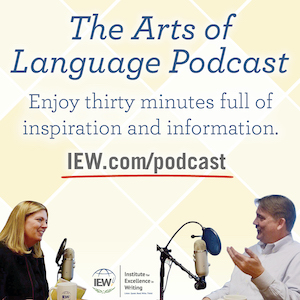Well, today was one of all homeschooling parents favorite days. Our summer curriculum has arrived!!! (Can I get an amen from all the curriculum junkies out there?)

When we began planning our homeschooling journey I decided that year-round schooling would be best for our family. The reasons for doing so initially dealt with schedules and our frequent moves. My husband is an active duty soldier, as such we move every 2-3 years.
At the beginning of 2015, my husband received orders to go to South Korea. We discussed the circumstances concerning our extended family’s health and decided it would be best for our children to be close to their grandparents and great grandparents for one year while their dad went unaccompanied. The move happened during the middle of the 2014-2015 school year.
After one year, my husband returned to the U. S. and we moved to a new duty station. Again, this move came in the middle of the school year. This is one of the primary reasons that we chose to homeschool.
During the most recent move, we chose to take time off school while we were traveling, looking for housing, and living in a hotel room with 3 kids and 2 dogs. (Thank goodness we found a suite with 2 rooms at a reasonable price at that time.). Once we found a house, we had to practically live with camping gear. (All the military families understand the joy of packing air mattresses, blankets, and basic kitchen ware in luggage.) I did take some homeschooling materials with us, but no one was ready to do school yet. To be honest, it would have been difficult without furniture. So we decided to do two days of school a week until we could get our house set up. The first day we went to different museums or the zoo. The second day was dedicated to getting finding materials at the library related to our outing…and fun reading too.
The state we moved to has a required number of days for attendance. Unfortunately, the move cost us days. Thankfully, I keep good records of when our curriculum changes and we started our “new” school year early.
Another great benefit for us is that we can have half-days when my husband has a day off work. On his days off he likes to sleep in; so the kids and I wake up hit all the easy subjects then double up on the missed subjects the next day.
Homeschooling year-round works best for us. What about those who are not military or deal with a lot of transition or traditionally schooled children?
One of the great benefits of doing school in the summer is the ability to learn through direct observation. Direct observation in a natural setting allows children to form a deep connection with nature and what they are studying. Imagine the difference of watching a duck on a documentary versus laying on the grass and observing using all of your senses. You hear the duck. You see how the wings flap while landing on a pond. You can see it eat corn from a feeder. You can feel the grass, the water, possibly even the duck. You can smell surroundings.
As mentioned above, our new curriculum arrived today. I chose to go with Memoria Press after seeing their science curriculum up close at a homeschool conference. I decided to use a few of their other options as well.
My kids are ages 6, 8, and 10; approximately in grades 2nd, 3rd, and 5th. We decided to use Memoria Press’ 4th and 5th grade science sets, which focus on insects and birds, during the summer. These topics are perfect for observation during the summer months. Our 3rd and 5th grader will complete the written work as required. Our 2nd grader will answer the same questions as the others in oral format. When he is older he will complete the required written materials. The Bird set includes a coloring books field guide. I ordered an insect coloring book from Amazon to integrate into the lessons. Another integration that we will use is literature integration. The library has a summer reading program. As part of the program, children check out books from the library and receive points for reading. We will use books about birds and insects from non-fiction, fiction, and picture book as part of our curriculum.
Side note: Following the advice found in The Well-Trained Mind, I require my children to choose books from different subject areas along with any books of interest they have. The topics they must check out are science, social science, history, arts & crafts or sports, a chapter books or leveled reader (depending on the child), and any number of books from areas of interest.
We are also studying Greek Myths and the 2nd grade literature set from Memoria Press. I chose the 2nd grade set because 1)my youngest is going to be a 2nd grader and 2) we have not read any of the books from that set. I decided it would be great to use as read-aloud during breakfast.
During summer month, many children lose academic skills in math and reading. While the studies that I have seen focus on traditionally schooled students, the possibility remains that some academic lapses are possible for homeschool students. It’s not only homeschooling families that can benefit from schooling year-round but also those who use traditional school during the regular school year.
If you are meeting your state requirements for homeschooling or your child attends a traditional school, you can still find engaging ways to “school” during the summer. Summer reading programs are an excellent motivator for many students. Children can read about topics that interest them which are not a major focus of the regular curriculum. Sometimes these topics can be used to integrate math into learning. For example, baseball is my son’s latest fun reading topic. He’s reading picture books, chapter books, and non-fiction books on the topic. He’s “only” ten but I can teach him statistics and some advanced math and work on basic math skills. We live close to a minor league stadium so we are able to attend games, which I use a rewards for reading a certain amount of books. (He has dyslexia, which can affect his motivation. A baseball game is a great motivator.)
My youngest is interested in construction. We use it as a way to integrate math and literature into his fun learning. For example, one day he came to tell me that one piece of equipment weighted 10 tons. I told him my truck was about 2 tons. Then I asked how many more trucks like mine would equal the same weight as that piece of equipment. He left without answering. Then a few minutes later he brought me some artwork which showed he needed 5 trucks like mine to be 10 tons. The drawing had a red truck (mine) and 4 blue trucks to show how many more he would need.
Summer learning allows one to explore interests that’s outside the world of academia. Summer learning does not have to be highly structured, unless you are like me and have more breaks during the year and must have the required days completed. It can be done in an unschooling method. I have used a semi-unschooling method during summer months. I simply give my kids a choice of 2 subject areas then they find something of interest witching that subject. I required them to find a way to integrate math into the subjec, learn 2 new vocabulary words, and then teach me about what they learned. One year, I was taught how to make Barbie crafts by my daughter.
Other ways to learn without feeling like school:
Using casual conversation is another method of learning that works well. My dad watches my nieces and nephews after school and during the summer. He does a word-of-the-day with them. He randomly picks a word then has them use it a few times in a sentence throughout the day. He tells them stories of our families history and his adventures growing up.
Another way to make summer learning fun is to teach the fun things that you know or let someone else teach them. This is another thing that my dad with all the grandkids. My grandpa was a mechanic and taught my dad a lot. My dad was a mechanic in the Army, then he worked at Skil, Bosch, & Dremel. He has taught the kids the different tools, how to care for tools, repair their own bikes, read tire pressure, and how to help with house and yard maintenance.





I will write a post about this tonight (hopefully). It is very relaxed.
I love your choices for your summer learning…I am brand new to Memoria Press and am hoping to place my order soon…I figure summer is a good time to try a new approach! What do your days look like while using the things you just received?
Thanks!
Jen